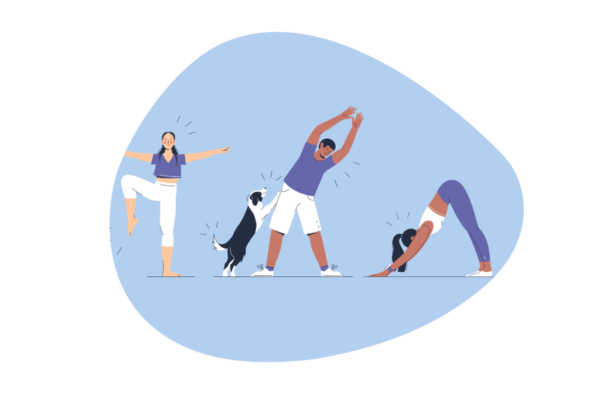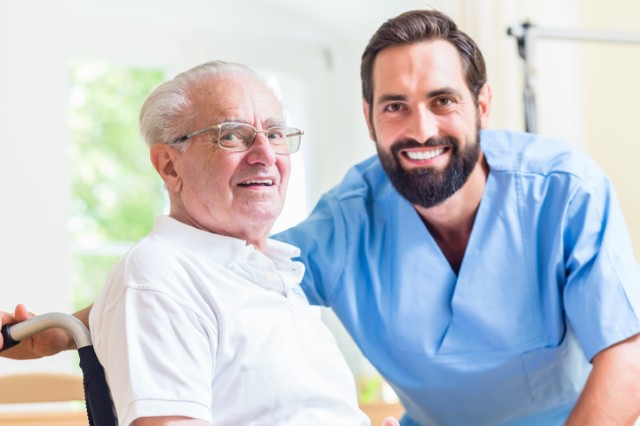Sports and incontinence: Which ones help and which worsen symptoms?
Everyone knows that sports and exercise can be really good for your health, boosting benefits such as decreasing your risk of major illness by up to 30%1. In fact, it’s recommended that you do a mixture of strengthening exercises and moderate-intensity activity four to five times a week2. Yet, if you experience incontinence, participating in sports can be daunting. Some studies even show that up to 20% of women have reported quitting exercise due to the fear of leaks3. But, playing sport is possible with bladder weakness, and there are even some forms of exercise that can improve your symptoms!
What is incontinence?
Incontinence is defined as the unintentional passing of urine, and it can be categorised into the following types:
- stress incontinence, when wee leaks out when your bladder is under pressure
- urge incontinence, when you get a sudden urge to go the toilet
- overflow incontinence, when you can’t fully empty your bladder
- total incontinence, when your bladder can’t store urine at all4.
In terms of how incontinence can affect sports, stress incontinence is the most common issue as it can cause you to leak urine when you exercise. However, there are still plenty of sports you can play while experiencing incontinence.

Which sports should you avoid with incontinence?
Firstly, there are certain sports that can cause you to experience incontinence more frequently, especially stress incontinence. For example, high-impact exercise, such as sit-ups and aerobics, can put extra strain on your bladder and therefore potentially cause leaks5. Other forms of exercise to avoid include any sports that involve skipping, jumping and excessive weights and core training.6 Nonetheless, there are still plenty physical activities you can enjoy with an overactive bladder.
Which sports can improve incontinence symptoms?
While some sports can make symptoms of urinary incontinence (UI) worse, there are many bladder-friendly exercises you can enjoy. Activities that strengthen your pelvic floor are ideal if you experience bladder weakness. These include:
- Pilates7
- yoga
- swimming
- cycling
- water aerobics
- Kegels8.
As these don’t apply pressure to the pelvic floor,9 you are less likely to leak urine. They can also improve your pelvic floor muscles, thus lessening your incontinence symptoms10. Plus, getting active can help you to lose weight11, which, in turn, can make leakages less frequent. This is because carrying extra weight can put more pressure on your bladder, making UI symptoms worse12. We highly recommend that you speak to your doctor before you take up a new exercise regime.
Tips for playing sports while experiencing leaks
Finally, there are other things you can do to lessen the chance of experiencing incontinence while playing sports. In addition to focusing on bladder-friendly sports, we suggest:
- using a suitable continence product to manage your leaks. iD Pants offer breathability and a snug fit to keep you dry and comfortable while you exercise. The topsheet contains natural ingredients improved by dermatologists, meaning you can enjoy peace of mind while wearing these incontinence pants
- hydration is important, but overfilling your bladder can cause more leaks at the gym
- eating a healthy diet. Not only is this good for your general health, some foods help prevent bladder inflammation. Also, as constipation can make urinary incontinence worse, upping your fibre intake can help relieve symptoms13
- quitting smoking – smoking cigarettes irritates the bladder and can also cause coughing fits (particularly during exercise!), which may cause leaks14
- cutting down on alcohol to avoid dehydration and more concentrated pee, which can also irritate your bladder, by causing dehydration and more concentrated urine.15
We hope this article has shown you that it’s possible, and even beneficial, to continue to play sports when you have incontinence!
Sources
1 “Benefits of exercise”, NHS, 4 August 2021, Source: https://www.nhs.uk/live-well/exercise/exercise-health-benefits/
2 “Physical activity guidelines for adults aged 19 to 64”, NHS, 4 August 2021, Source: https://www.nhs.uk/live-well/exercise/exercise-guidelines/physical-activity-guidelines-for-adults-aged-19-to-64/
3 “Exercising with incontinence”, Phil Wilkinson, n.d., Source: https://www.independenceaustralia.com.au/health-articles/continence/exercising-with-incontinence/
4 “Urinary incontinence”, NHS, 7 November 2019, Source: https://www.nhs.uk/conditions/urinary-incontinence/
5 “10 ways to stop leaks”, NHS, 7 November 2019, Source: https://www.nhs.uk/conditions/urinary-incontinence/10-ways-to-stop-leaks/
6 “Exercising with incontinence”, Phil Wilkinson, n.d., Source: https://www.independenceaustralia.com.au/health-articles/continence/exercising-with-incontinence/
7 “10 ways to stop leaks”, NHS, 7 November 2019, Source: https://www.nhs.uk/conditions/urinary-incontinence/10-ways-to-stop-leaks/
8 “Exercising with incontinence”, Phil Wilkinson, n.d., Source: https://www.independenceaustralia.com.au/health-articles/continence/exercising-with-incontinence/
9 “Loss of bladder control and sport: What can I do?”, Fizimed, 19 June 2019, Source: https://www.fizimed.com/en/blog/bladder-control/
10 “10 ways to stop leaks”, NHS, 7 November 2019, Source: https://www.nhs.uk/conditions/urinary-incontinence/10-ways-to-stop-leaks/
11 “12 tips to help you lose weight”, NHS, 29 November 2019, Source: https://www.nhs.uk/live-well/healthy-weight/managing-your-weight/12-tips-to-help-you-lose-weight/
12 “Urinary incontinence: 5 ways you may be making your symptoms worse”, King Edward VII’s Hospital, n.d., Source: https://www.kingedwardvii.co.uk/health-hub/urinary-incontinence-5-ways-you-may-be-making-your-symptoms-worse
13 “What NOT to do at the gym”, Continence Foundation of Australia, 22 September 2016, Source: https://www.continence.org.au/news/what-not-do-gym
14 “7 Urologic Conditions Impacted by Smoking”, Urology Care Foundation, 14 March 2018, Source: https://www.urologyhealth.org/healthy-living/care-blog/2018/7-urologic-conditions-impacted-by-smoking
15 “Alcohol and The Impact It Has on Your Bladder and Bowels”, Ruth Hilton, 8 August 2018, Source: https://www.hartmanndirect.co.uk/information-centre/alcohol-and-the-impact-it-has-on-your-bladder-and-bowels/
This article was originally published on iD Direct and has been edited and republished here with permission.
iD is the flagship brand of Ontex's range of adult care personal hygiene solutions. With over 40 years of experience, Ontex has developed innovative personal hygiene solutions to deliver high quality, affordable products to our customers across the globe.
Ontex's iD brand of disposable continence solutions is developed using the latest innovation and technology to provide maximum discretion as well as keep you safe and secure through fast absorption technologies. It is through our products, our practices and our people that we have got you covered for all your continence needs. Try one of our products today and choose to be confident - choose iD!




